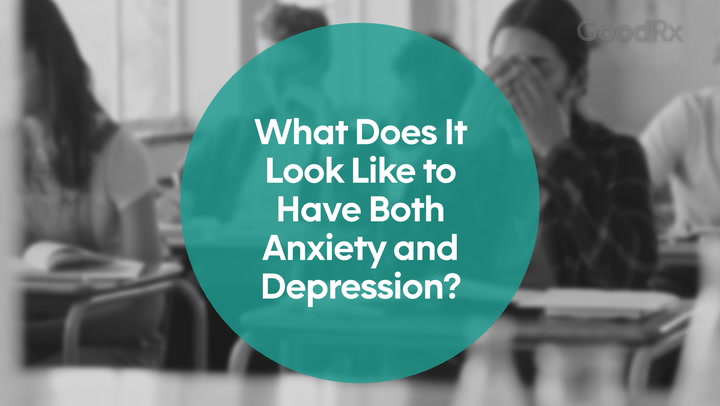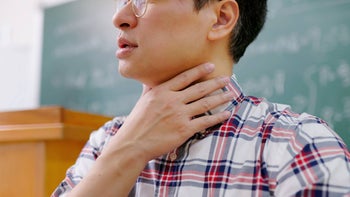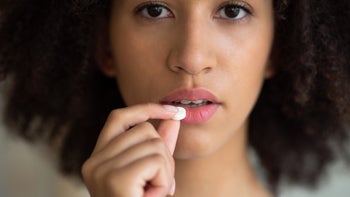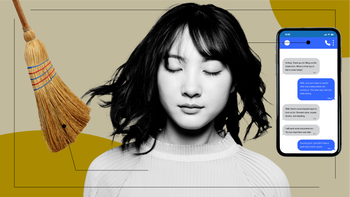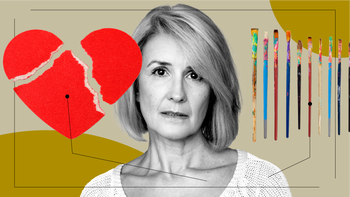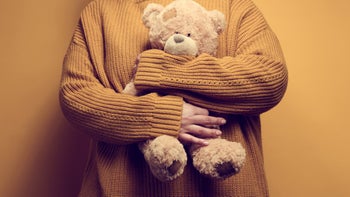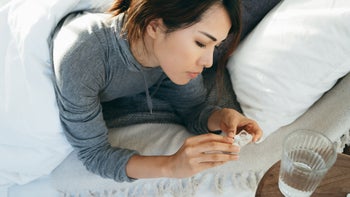
How Are Anxiety Disorders and Alcohol Use Related?
Key takeaways:
Although many people drink when they feel anxious, alcohol can actually increase anxiety as it leaves a person’s system..
Alcohol affects many chemicals in the brain, including neurotransmitters that play a role in stress, panic, and anxiety
Cutting back on alcohol can be helpful for people with anxiety, especially if alcohol is creating or worsening anxiety symptoms.

Many people with anxiety turn to alcohol to “self-medicate.” Though alcohol’s effects can sometimes feel like a welcome reprieve from anxiety, it’s not a solution. On top of other health risks — like liver damage, cancer, and heart disease — alcohol can affect your brain health and make anxiety worse.
It can also interact with common anxiety medications. And, in some cases, drinking alcohol with these medications can be dangerous.
How does alcohol affect anxiety?
Drinking beer or wine sometimes seems like a helpful way to ease anxiety. This is because alcohol is both a stimulant and a sedative, meaning it can make you feel more energetic and engaged, as well as calm and relaxed.
Search and compare options
Though we don’t completely know how alcohol works in the brain, it seems to affect certain neurotransmitters like dopamine, gamma-aminobutyric acid (GABA), and serotonin. This means alcohol can change your mood, thoughts, and behavior, as well as give you some (short-lived) relief from anxiety.
But, while small amounts of alcohol can sometimes ease anxiety, the effects are only temporary. Once the flow of alcohol stops, those positive feelings go away and may leave anxious feelings in their wake. And, in some cases, your anxiety can actually become worse than before you started drinking.
Alcohol can affect your anxiety levels in other ways, too. Alcohol can make it harder for you to get a restful night's sleep. It can also make it harder for you to fall asleep and stay asleep — and can make sleep apnea worse. And there’s evidence that when you don’t get enough good-quality sleep your stress and anxiety are even higher the following day.
Quiz: Am I an alcoholic?
What is hangover anxiety?
Hangover anxiety (or “hangxiety”) is when you feel anxious after drinking, which usually happens the day after you consume alcohol. It can happen to anyone, even if you don’t drink frequently.
Anxious feelings the morning after drinking can include embarrassment, insecurity, or uncertainty about things that may have happened while you were intoxicated. And if you already have an anxiety disorder — like panic attacks — an alcohol hangover can even make your symptoms worse.
If you’re interested in learning more about this topic, check out our article on hangover anxiety.
The link between anxiety, alcohol use disorder, and alcoholism
Having an anxiety disorder puts you at a higher risk of developing an alcohol use disorder. Statistics show that 1 of 5 people with anxiety reports using alcohol to cope with their symptoms.
As mentioned earlier, the temporary effects of alcohol can relieve feelings of stress and anxiousness. But, over time, it can become tempting to use alcohol as a crutch to avoid anxiety symptoms, which can ultimately lead to problems with alcohol use.
Treating alcohol misuse in people with anxiety can also be challenging. If you have problems with alcohol misuse and suddenly stop drinking, you may go through alcohol withdrawal, which can cause severe symptoms like aggression, seizures, and hallucinations. Those symptoms can trigger panic and anxiety, making an existing anxiety disorder worse. This is why the guidance of a healthcare provider is so important when trying to quit drinking.
Does alcohol cause anxiety disorders?
We discussed how anxiety can raise your risk of alcoholism or alcohol dependence, but the opposite can also be true.
Some research suggests that drinking too much over a long period of time changes the way your brain works in a more permanent way. Drinking alcohol makes it more difficult for you to control and manage your emotions, which can increase your chances of developing an anxiety disorder.
Alcohol and panic attacks
A panic attack is a sudden, intense episode of fear or anxiety. Panic attacks can also cause physical symptoms, like feeling short of breath, dizzy, or sick to your stomach.
We don’t know exactly what causes panic attacks, but they might be a product of different parts of your brain “overreacting” to your environment. And since we know that alcohol affects GABA, a brain chemical linked to relaxation, it’s possible that using alcohol could make you more vulnerable to panic attacks. In other words, alcohol may make it easier for your brain to go into fight or flight mode.
Alcohol and anxiety medications
We’ve considered how alcohol might impact your anxiety disorder, but it can also interact with certain anxiety medications. Since alcohol is a sedative and slows down the nervous system, it can be dangerous when consumed with common anxiety medications that also affect your nervous system.
Benzodiazepines
Let’s talk about benzodiazepine medications first. These include medications like alprazolam (Xanax) and clonazepam (Klonopin), which are used for short-term relief of anxiety. Like alcohol, they relax and slow down the nervous system.
It’s dangerous to combine benzodiazepines with alcohol. Consuming them together can cause extreme drowsiness, difficulty thinking clearly, and the slow down or shut down of the respiratory system. The combination can even lead to death.
The bottom line: Benzodiazepines and alcohol should never be combined.
Selective serotonin reuptake inhibitors
The first-choice medications for anxiety are usually antidepressants known as selective serotonin reuptake inhibitors (SSRIs) and serotonin and norepinephrine reuptake inhibitors (SNRIs).
If SSRIs and SNRIs are mixed with alcohol, extreme drowsiness can occur. The combination may also make it unsafe for you to do things like driving or operating heavy machinery. Overall, it’s best to limit alcohol if you take one of these medications. When in doubt, talk to your healthcare provider.
How much is too much alcohol?
There is no amount of alcohol that is completely safe, no matter your age, gender, or mental or physical health status.
If you do choose to drink alcohol, talk to your healthcare provider about how it might affect you — especially if you have anxiety.
Because of the risks we talked about above, most providers will recommend that you never drink alcohol while taking a benzodiazepine, and some will recommend limiting drinking alcohol if you take an SSRI or SNRI. The National Alliance on Mental Illness suggests no more than one drink a day for women taking antidepressants and two drinks a day for men taking antidepressants.
The American Heart Association recommends the same limitations, whether people have an anxiety disorder or not. The organization’s guidelines are:
Women should have no more than one drink per day.
Men should have no more than two drinks per day.
One standard drink is considered to be 12 ounces of beer, 4 ounces of wine, 1.5 ounces of 80-proof alcohol, or 1 ounce of 100-proof alcohol.
Where can you get help if you struggle with alcohol misuse and anxiety?
If you struggle with alcohol misuse and anxiety, consider having a conversation with your healthcare provider. There’s no need to be shy about talking to your provider. They are trained to help you and treat your conditions without judgment. If you use alcohol regularly, you may also need medical supervision if you decide to quit, to avoid complications from alcohol withdrawal.
If you or a loved one has a problem with alcohol misuse, you can also get help by calling the Substance Abuse and Mental Health Services Administration (SAMHSA) National Helpline at 1-800-662-HELP (4357). You can also find helpful resources through the National Institute on Alcohol Abuse and Alcoholism.
Treating alcohol use disorder and anxiety
Since alcohol use disorder and anxiety are so closely related, many healthcare providers are used to treating them together.
A type of therapy called cognitive behavioral therapy (CBT) is an effective way to treat both conditions. CBT works by helping you identify how alcohol is affecting your life and change the way you think about your fears and struggles, with the ultimate goal of improving your behavior and how you cope.
In addition to therapy, your healthcare provider may also recommend prescription medications to treat either or both conditions.
What are some healthy ways to cope with anxiety?
Using healthy coping strategies to manage your anxiety can be helpful. Here are some ideas to try:
Try meditation. During meditation, you focus on deep, controlled breathing, which can help regulate your heart rate and focus your thoughts. You might also couple medication with aromatherapy or calming music.
Do calming exercises. Yoga and other forms of physical exercise can help with anxiety symptoms. Breathing exercises that you do in yoga are also a great way to help your body and mind calm down.
Journaling. Writing about your thoughts and feelings is a great way to gain more control over them. Journaling works even better when combined with behavioral therapy like CBT.
Relax under a weighted blanket. Sitting under a special, heavy blanket may help lower anxiety and promote relaxation.
Use essential oils. Inhaling the aroma from certain essential oils, like lavender and orange peel, may help with anxiety.
Sip some chamomile tea. Drinking chamomile tea may be helpful for reducing stress and anxiety.
In addition to these relaxing activities, be sure to stick to any treatments your healthcare provider recommends, and don’t hesitate to talk to them about any concerns.
Will quitting alcohol help your anxiety?
For many people, quitting alcohol helps with anxiety and panic. But keep in mind: Anxiety is a symptom of alcohol withdrawal. That means, if you’ve been drinking regularly over a long period of time, your anxiety might get worse for a while after you stop.
Read more about what alcohol withdrawal feels like and how to work with your healthcare provider to make sure you get through quitting drinking safely.
How long does alcohol anxiety last?
For many people, alcohol only causes short-term handover anxiety, lasting less than a day. But, for some, drinking can lead to ongoing symptoms of anxiety — especially if you're drinking regularly or more heavily than recommended. When drinking leads to ongoing anxiety, it’s sometimes called a substance-induced anxiety disorder.
The bottom line
Having a drink can help you feel less anxious, but be aware that it can come at a cost, especially if you have an anxiety disorder. When alcohol leaves your body, it can actually make your anxiety symptoms worse and even make you more vulnerable to panic attacks.
Cutting down on alcohol — or even quitting altogether — may help your anxiety get better. If you drink alcohol and have anxiety, talk to your healthcare provider. They can help you understand which treatments are best for you, including therapy, medications, or even a supervised medical withdrawal if necessary.
Why trust our experts?


References
Alcohol Rehab Guide. (2022). Alcohol and anxiety.
American Heart Association. (2016). Limiting alcohol to manage high blood pressure.
Anxiety & Depression Association of America. (2021). Sleep disorders.
Drinkaware. (2022). Alcohol and anxiety.
Hendler, R. A., et al. (2013). Stimulant and sedative effects of alcohol. Current Topics in Behavioral Neurosciences.
McIntosh, C., et al. (2004). Alcohol and the nervous system. Journal of Neurology, Neurosurgery, and Psychiatry.
National Alliance on Mental Illness. (n.d.). Can I drink alcohol while taking antidepressants?.
National Institute on Alcohol Abuse and Alcoholism. (2021). Treatment for alcohol problems: Finding and getting help.
Perkins, C. (2021). The science behind panic attacks — and what you can do to manage them. TED Ideas.
University of North Carolina School of Medicine. (2012). Heavy drinking rewires brain, increasing susceptibility to anxiety problems. ScienceDaily.
For additional resources or to connect with mental health services in your area, call SAMHSA’s National Helpline at 1-800-662-4357. For immediate assistance, call the National Suicide Prevention Lifeline at 988, or text HOME to 741-741 to reach the Crisis Text Line.


